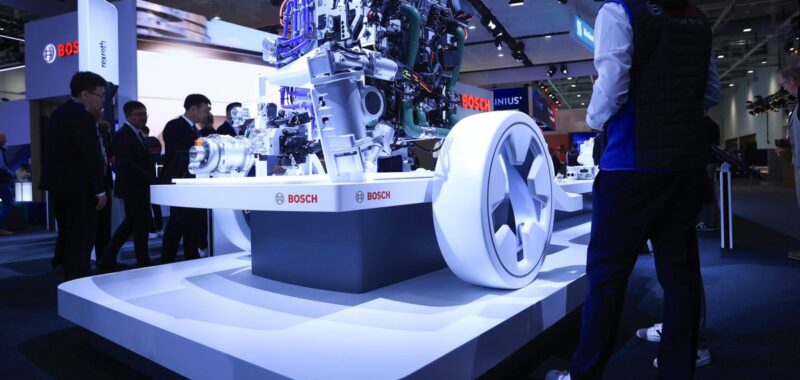
Robert Bosch, the struggling German industrial giant undertaking a massive overhaul of its workforce, has doubled down on cost-saving efforts by reducing the pay and working hours of thousands more employees in a sign of the plight faced by German companies amid the country’s flatlining economy.
On Friday Bosch said it would cut the working hours of 450 employees from 38-40 hours per week to 35 hours per week, effectively giving employees an unwanted four-day week. On Saturday, the company confirmed it would double down on those plans, expanding the reduced working hours to 10,000 of its workers, according to several reports.
Many of those who didn’t see their hours reduced faced even worse news that they would be losing their jobs. On Friday, Bosch also said it would be laying off 5,550 of its workers to combat a challenging financial environment for the company.
That followed an announcement in October that Bosch would be laying off 7,000 employees as the company’s chairman Stefan Hartung said the company wouldn’t meet its financial targets for 2024.
A representative for Bosch didn’t immediately respond to a request for comment.
Bosch struggles in Germany’s flatlining economy
Bosch is one of Germany’s biggest employers, with a headcount of 429,000 people at the end of 2023, according to its latest annual report. That figure is likely to be considerably lower by the end of 2024 in the wake of two rounds of layoffs.
Speaking on Friday, a spokesperson for Bosch said decisions to reduce working hours were made in the context of a “difficult economic situation.” Germany’s economy is set for a second consecutive year of negative economic growth, as the manufacturing sector sits mired in two and a half years of recession.
The €92 billion giant Bosch, which makes most of its revenue from its automotive supply business, hasn’t been able to escape a downturn in Europe’s automotive sector that has hit German carmakers particularly hard.
The company makes things like brakes and spark plugs for several car manufacturers, which proved a boon as globalization expanded at the turn of the century.
However, European carmakers are struggling to adapt to rising competition from cheap Chinese suppliers and falling demand abroad while also fretting about potential tariffs under an incoming Donald Trump administration in the U.S.
German companies’ struggles are indicative of the country’s issues as an export-heavy economy that hasn’t been able to adapt to rising energy prices and weaker demand in its vital external markets.
Volkswagen is in the midst of a huge €10 billion cost-cutting drive, which is being held up by a battle with its powerful works council over agreements on pay reductions, layoffs, and potential factory closures.
Speaking to German weekly publication Welt am Sonntag, Volkswagen’s brand chief executive Thomas Schaefer said avoiding layoffs and plant closures wouldn’t help the carmaker keep up with its competitors.
“Ultimately, any solution must reduce both overcapacity and costs. We can’t just stick a band-aid on it and keep dragging it along. That would come back to bite us later in a serious way,” Schaefer said.

